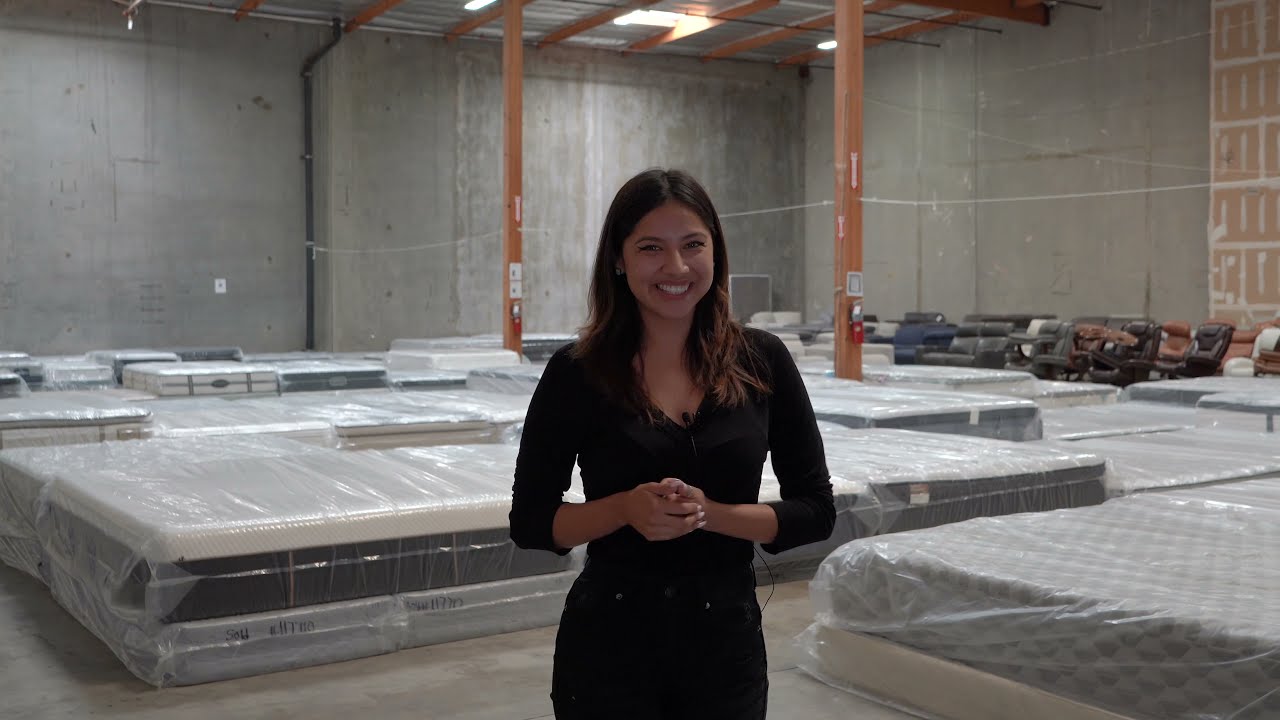Just as there are at least two or three competing fast food restaurants in any town, you can expect your local mattress store to have plenty of competition. Consumers are often willing to visit several stores before choosing one. Because they are likely to compare prices and quality, the owners of mattress stores know they need to staff their stores with the best salespeople in town. Also, they need to keep their prices competitive with other local retailers. Regardless of their size, they must remain competitive in price and service.
Online mattress retailers
Many consumers don’t realize that online mattress retailers are helping to keep traditional brick-and-mortar mattress stores in business. During a holiday season, for example, all of the mattress retailers will be offering a sale. If you’re in the market for a new bed, holiday sales events are a great time to shop. While many online retailers will offer a limited selection of mattresses, most will feature more than one brand.
Despite the large margins, online mattress companies are not able to pass those savings on to consumers. One reason for this is that online mattress companies don’t have the high overhead of brick-and-mortar retailers. Online retailers also don’t have to hire salespeople, and most of their staff works on commission. Additionally, they can ship mattresses for less money than a traditional store can, which cuts costs for both companies.
The advantages of online mattress stores include the ability to compare prices and models, and the ability to shop for the best deal online. The internet gives you the ability to compare brands without feeling pressured by salespeople. In a retail showroom, you might only have one or two options to choose from. In an online showroom, you can choose from dozens of brands, and you don’t have to worry about having to wait weeks to receive your purchase.
The popularity of online mattress retailers has made it difficult for brick-and-mortar mattress stores to stay in business. Online retailers are taking over five percent of the market and are poised to double their reach. However, brick-and-mortar mattress stores still exist for those who prefer to browse in-person and compare prices. So, online mattress retailers should not be ignored. But be sure to research the brands and pricing before making a decision.
Low overhead
If you have ever walked into a mattress store, you’ll know exactly how much money you can make on a new mattress. It might seem like a great business model, but the fact is that the average adult only buys a mattress once every five to 10 years, making the overhead incredibly high. Mattress stores aren’t the only places that have high overhead, though. In fact, many of them are even struggling to stay open.
The main reason that brick and mortar mattress stores are struggling is that their markup is so high. Since they aren’t often bought as every day items, many stores are within five miles of each other. This creates fierce competition, especially with online retailers. And while there are online companies that specialize in selling mattresses, most are still dependent on local brick-and-mortar stores. So what is the answer? Fortunately, there are still many benefits to owning your own mattress store.
Unlike other retailers, mattress stores don’t keep large inventories on hand. Instead, they ship in the mattresses straight from the manufacturer. Another benefit is that mattress stores don’t have a large staff because they don’t pay their employees unless they make sales. This allows them to operate for long hours, even in less profitable markets. And they don’t have to pay salespeople because their commissions are based on commission.
In addition to low overhead, mattress stores have a low cost of advertising. Because people buy a mattress for eight to ten years, they are likely to visit a brick-and-mortar store before they buy it online. This means additional foot traffic and the opportunity to offer deals. The economic downturn has prompted many consumers to postpone their big purchases until they can afford them. In addition, consumers still prefer to visit a store to make sure they get the right mattress for their needs.
Commission-based salary
In this day and age where many people shop for everything online, retail stores that sell mattresses are becoming more important. But while you may be wondering if there’s still a place for mattress retailers, consider this: they often have low overhead, deal with factory-direct products, and pay commission-based salaries to employees. That means they can stay open even if the showroom is empty. According to Sam Woods, Senior Vice President of Sales for Mattress Firm, selling three or four beds a day can generate $4,000 a month. By comparison, it’s easy to see how that kind of income can help these stores remain open for long periods of time, even in less-profitable markets.
The reason mattress prices have been able to increase is because of advances in sleep science and technology. Mattress manufacturers often have very high overhead costs and markups compared to other products, so they must make huge profits to survive. According to IBISWorld, the global mattress market is expected to reach $25 billion in the next two years. As a result, profit margins are expected to remain high for the foreseeable future. Considering this, the only real threat to mattress retail locations would be a large retail chain that offers lower-cost mattresses, and would have a much smaller profit margin.
In the United States, there are more than 6500 retail stores that employ sales associates. Each worker receives 240 hours of training as part of a new hire education program. The average sales per employee increased after the switch to a commission-based compensation plan. Additionally, the company is working on tools that allow store managers to receive commissions from online transactions. The company’s goal is to expand its presence in more markets and increase their profit margin.
Quality product
While mattress stores might seem archaic in an age of Amazon, many people still go to brick and mortar stores. According to a 2014 study by A.T. Kearney, ninety percent of all retail transactions take place in physical stores. Mattress stores have an advantage over other retailers because they typically have lower overhead. Additionally, they can keep their inventory stocked because of low foot traffic. Online retailers, such as Leesa and Casper, have cut down on inventory costs.
While mattress salespeople are experienced and have access to detailed information on products, bargaining can be tricky. Luckily, there are many ways to get a better deal, including online sellers. Online retailers tend to have a lower markup, and they often offer extra perks. Mattress manufacturers often create exclusive deals with individual stores. Mattress Firm, for example, sells a product called the Perfect Sleeper under a different name at each of their locations.
Mattress manufacturers often make personalized lines to protect their turf by limiting the number of competitors. This way, retailers can avoid price wars by offering similar products. Because the names of these models vary, it is difficult to compare online reviews to compare features of each mattress. To find the truth behind a mattress, look for details like coil count and padding layers. These details are critical in determining whether one mattress is better than another.
Despite the competitive environment, mattress sales have been on the rise. The Covid-19 pandemic, a rise in consumer disposable income per capita, and a rise in construction activity have all contributed to a surge in the market. While brick and mortar stores haven’t completely disappeared, it is important to remember that consumers are increasingly likely to conduct research online before making a purchase. So, the next time you are looking for a new mattress, consider purchasing it online.
Convenience
Although mattress stores might seem outdated in the age of Amazon, the fact is that people still go to brick-and-mortar retailers to buy their mattresses. A report by A.T. Kearney revealed that 90 percent of retail transactions still take place in physical stores. The mattress industry is no exception, and dedicated mattress stores represent 46 percent of the market. Dedicated mattress stores even outperform department and furniture stores when it comes to market share.
The U.S. retail bedding industry is estimated at around $15 billion a year. The proliferation of mattress stores has been a positive for mattress manufacturers, such as Sealy and Crescent Mattress, which operate plants in Trinity and Rock Creek Center east of Greensboro. Nonetheless, the proliferation of these stores poses overhead and real estate risks for independent mattress retailers. Aside from the recurring overhead costs, a deteriorating economy has hampered many independent retailers.
Besides convenience, another factor that helps mattress stores stay in business is a growing number of consumers who are planning to buy a mattress online before visiting a brick-and-mortar store. This phenomenon is called showrooming, and it results in additional foot traffic and offers for retailers. Many people in the U.S. put off buying a large purchase for several years, including a mattress. Because of this, consumers are now looking for the best mattress for their budget.
In addition to offering convenience, mattress stores also provide competitive pricing. The online world has made it possible for consumers to compare prices from multiple online sources. However, consumers still want to touch and feel their new mattress before they buy it. In order to remain competitive, retailers must offer innovative technology and customer service to compete in this marketplace. There are many ways to improve customer satisfaction. The two most important strategies are convenience and innovation.



